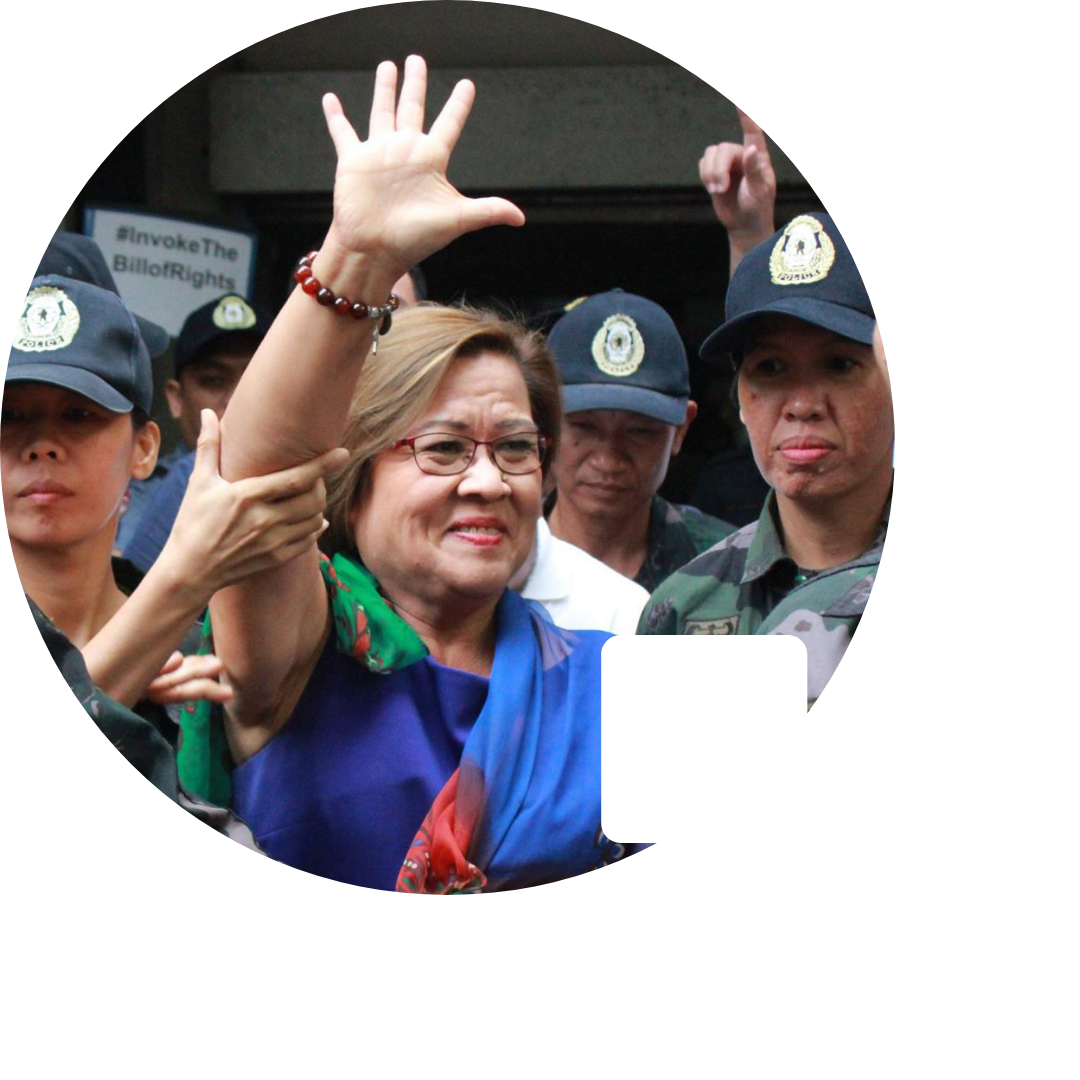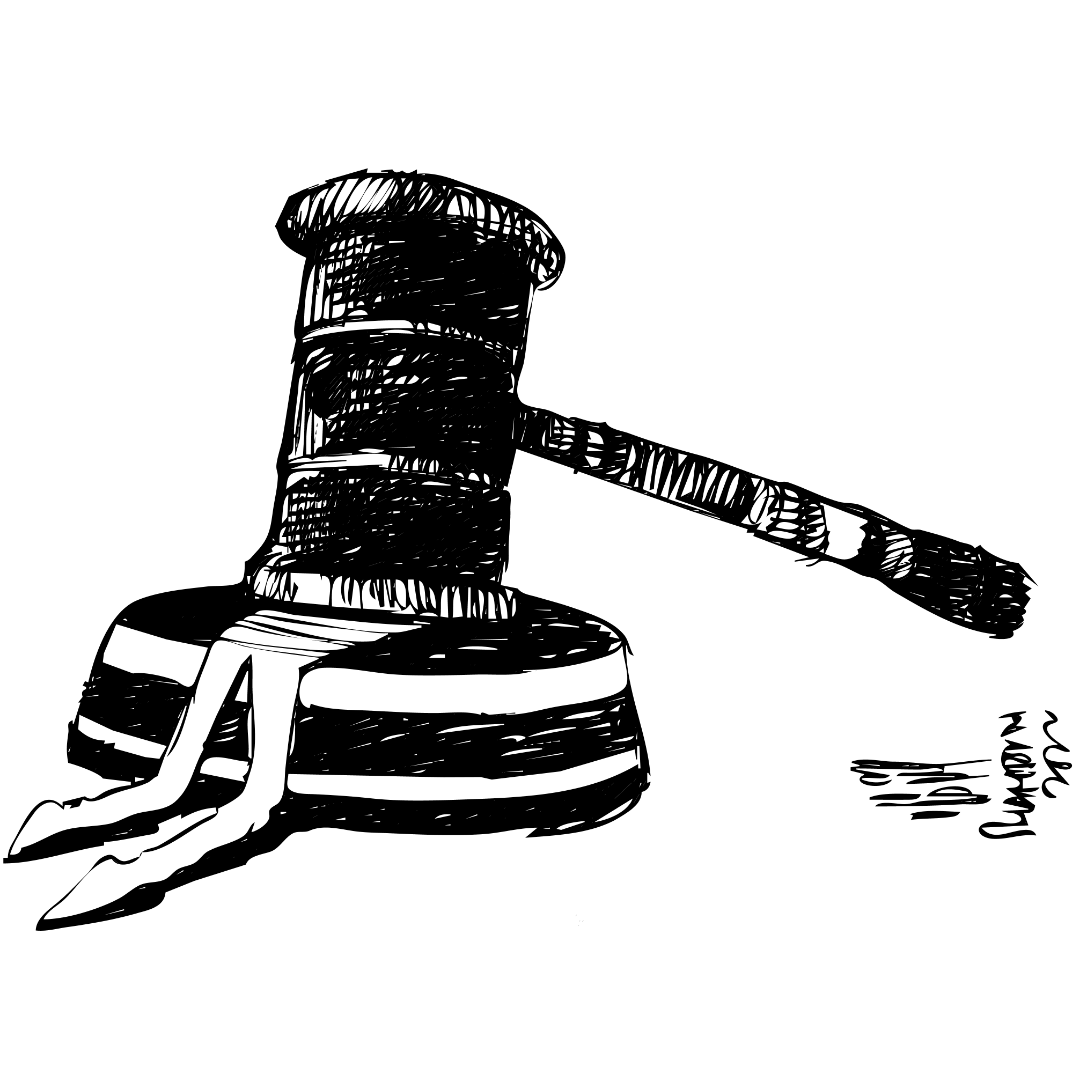
PHILIPPINES
Leila M. de Lima
She is a Filipina lawyer and human rights activist. She served as Chair of the Commission of Human Rights (CHR) from 2008 to 2010, Secretary of Justice from 2010 to 2015 and as Senator from 2016 to 2022. As a Senator, Leila M. de Lima started investigations on the extra-judicial killings committed in the so-called “War on Drugs”, which the former president of Philippines, Rodrigo Duterte, launched after assuming office in 2016. In her role as the CHR Chair, she opened an inquiry into Duterte’s involvement in extrajudicial executions during his time as Mayor of Davao City. In this way, she became one of the firmest and most vocal critics of the former president of Philippines. On trumped up and politically motivated charges, she was arrested in February 2017 and has been held in detention since then. Her detention has kept Leila M. de Lima from fully and effectively fulfilling her former mandate as a Senator and her work as human rights defender, as she was not allowed to attend Senate sessions or to vote on legislations. Having failed to get re-elected as Senator in 2022, Leila M. de Lima intends to continue her human rights advocacy in her capacity as a private citizen and lawyer as soon as she regains freedom. In May 2022, two key witnesses retracted their testimony in the government’s case against Leila. Amnesty International has recognized her as a prisoner of conscience.
VITA
She is a Filipina lawyer and human rights activist. She served as Chair of the Commission of Human Rights (CHR) from 2008 to 2010, Secretary of Justice from 2010 to 2015 and as Senator from 2016 to 2022. As a Senator, Leila M. de Lima started investigations on the extra-judicial killings committed in the so-called “War on Drugs”, which the former president of Philippines, Rodrigo Duterte, launched after assuming office in 2016. In her role as the CHR Chair, she opened an inquiry into Duterte’s involvement in extrajudicial executions during his time as Mayor of Davao City. In this way, she became one of the firmest and most vocal critics of the former president of Philippines. On trumped up and politically motivated charges, she was arrested in February 2017 and has been held in detention since then. Her detention has kept Leila M. de Lima from fully and effectively fulfilling her former mandate as a Senator and her work as human rights defender, as she was not allowed to attend Senate sessions or to vote on legislations. Having failed to get re-elected as Senator in 2022, Leila M. de Lima intends to continue her human rights advocacy in her capacity as a private citizen and lawyer as soon as she regains freedom. In May 2022, two key witnesses retracted their testimony in the government’s case against Leila. Amnesty International has recognized her as a prisoner of conscience.
You have been detained since February 2017 based on trumped up charges. Could you please update us whether there has been any developments regarding your case?
I am more optimistic now that with the end of Duterte’s term, the pressure on the judges and the Department of Justice will end and the new government will no longer push all these fabricated cases against me. This is what I have been waiting for which gives me hope that this persecution will no longer have any power behind it to keep me imprisoned. I filed a new motion for bail in light of the withdrawal of a key witness against me. Apart from this witness, there are two other witnesses, who also confessed that they were just forced by government officials to falsify their testimonies against me. This development is a big boost in one of my cases, because the falsified testimony is the only link to the fictional charges, and the primary evidence relied upon by the court. As to the second remaining case against me, almost all of the material witnesses are criminal convicts serving time at the national prison. They are still testifying either due to threats or bribes, but only so long as Duterte is still the president. I think there will no longer be any pressure or incentive on their part to continue to lie before the court with the end of Duterte’s regime. I expect them to no longer be willing to appear in court after the inauguration of the new president. Even if they do appear, they will, hopefully, retract their statements. Finally, the truth is coming out that all these cases were just manufactured by Duterte and his men.

“We lose democratic values and human rights the moment we stop fighting.”

Since your detention, have you been able to receive any legal aids or any other support to appeal your case?
In terms of legal help, I am solely relying on my legal team for the past five years. However, I recognize the big impact that messages of solidarity and support from the US Senators and Congresspersons, members of parliament of other countries, the European Parliament, international human rights organizations, NGOs, foundations like Friedrich Naumann Foundation for Freedom (FNF), and other groups and individuals have on my situation. Even if they seem to have no impact on the former Duterte’s government and the judges, at least they are a constant reminder to Filipinos that the world is still watching the Philippines and continues to be concerned with our human rights situation. In the end of May 2022, the incoming Secretary of the Department of Justice of the incoming Marco’s Administration told media that he is willing to review my cases. The withdrawal of several witnesses is a red flag that there is something wrong with my cases. For now, I will take his word for it and hope that he personally reviews my cases.
How do you evaluate human rights activism among lawyers in the Philippines?
Only a minority of lawyers are engaged in human rights work because of the risks it entails, and unlike other fields of legal practice, it is not financially rewarding. The main problem human rights lawyers face is the so called “red-tagging” or being identified as ideological partners of their clients, who are usually militant activists branded by the state as “communists” or their sympathizers. Even when clients are not part of political movements, but are just normal community members, their lawyers are harassed. The prevailing sentiment of indifference, if not hostility, to human rights causes is another problem in Philippines, especially when reinforced by state-sponsored propaganda on social media. Nevertheless, the primary problem is the weak character of the Philippine justice system, which makes it permeable to political changes. This observation is based on my personal experience of having been persecuted and imprisoned by the entire government machinery just for daring to demand for a stop to Duterte’s murderous drug war.
My message to the lawyers is simple:
Stay the course! Lawyers should be at the vanguard of fighting for human rights and resisting violations thereof. We lose democratic values and human rights the moment we stop fighting.
Philippines
